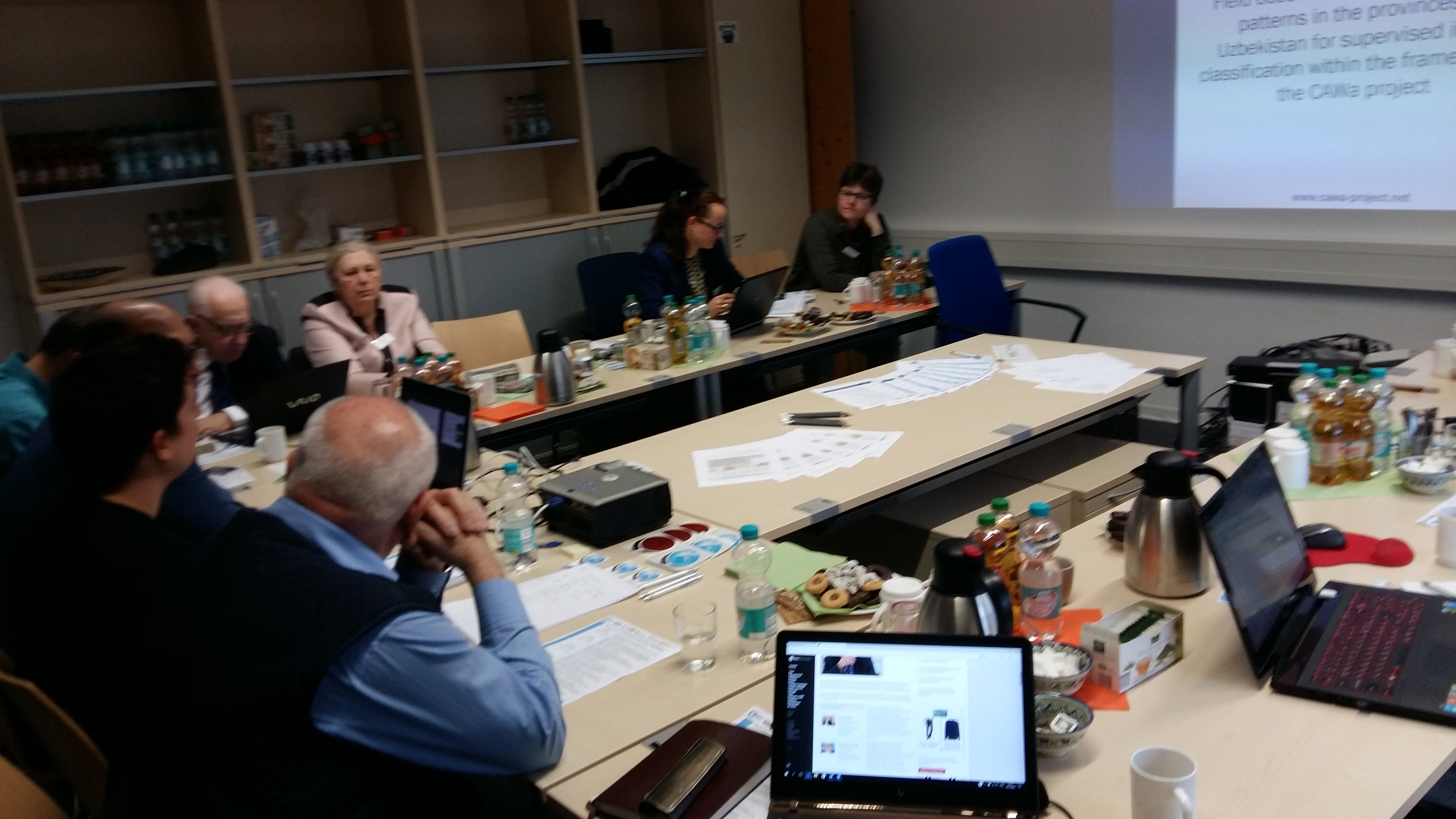Time to coordinate actions: Wuerzburg hosts next workshop of Regional Research Network “Water in Central Asia”
 November 21-25, 2016, the Remote Sensing Unit at the University of Wuerzburg (Germany) hosts the second workshop of Regional Research Network “Water in Central Asia” (CAWa) on the project workpackage III ‘Water Use Efficiency Monitoring’. The main objectives of the workshop are to discuss the status of joint work on CAWa activities, planning future work in workpackage III. In the framework of the event, the meeting with the representatives of the German-Kazakh University (DKU) and German Society for International Cooperation (GIZ) as well as the CAWa project coordination at the German Research Centre for Geosciences (GFZ) are scheduled to exchange knowledge and to address future perspectives of cooperation and initiatives.
November 21-25, 2016, the Remote Sensing Unit at the University of Wuerzburg (Germany) hosts the second workshop of Regional Research Network “Water in Central Asia” (CAWa) on the project workpackage III ‘Water Use Efficiency Monitoring’. The main objectives of the workshop are to discuss the status of joint work on CAWa activities, planning future work in workpackage III. In the framework of the event, the meeting with the representatives of the German-Kazakh University (DKU) and German Society for International Cooperation (GIZ) as well as the CAWa project coordination at the German Research Centre for Geosciences (GFZ) are scheduled to exchange knowledge and to address future perspectives of cooperation and initiatives.
__________________________________________________________________
November 22, 2016, on behalf of CAREC, Dr. Iskandar Abdullaev made a presentation on the role of CAREC in this project. The organization actively supports and promotes an implementation of innovative tools in the sphere of environmental protection. CAWa, in turn, use GIS/RS technologies for data collection, which improve data visualization for ecological reports.
Dr. Abdullaev demonstrated an overview of potential cooperation areas, mentioning environmental management education for sustainable development, water initiatives support, climate change and sustainable energy, health and environment.
Background
Up to date Central Asia faces huge water-related challenges, including water scarcity, degrading water quality and inefficient water use. Climate change may even aggravate the situation. These challenges can be met only in a joint effort of all Central Asian states. The CAWa project intends to contribute to a sound scientific and a reliable regional data basis for the development of sustainable water management strategies in Central Asia.
In close cooperation, German and Central Asian partners assess scenarios of climate change impact, estimate future water availability, study the role of groundwater and investigate irrigation efficiencies.
The scientific methods developed and applied within the project are passed on in training courses to Central Asian professionals and will be implemented into programs for tertiary education.
Photo for collage from the main page: Lance Longwell on September 14, 2014
